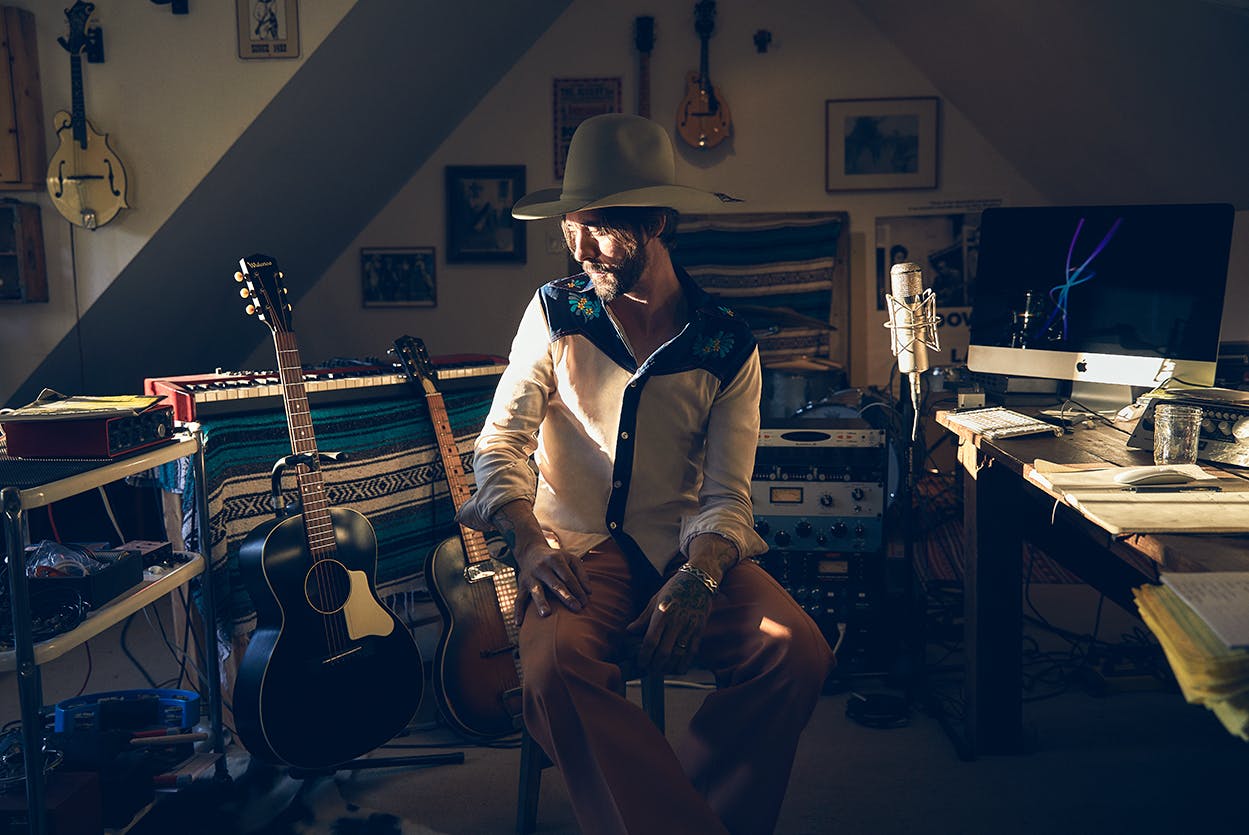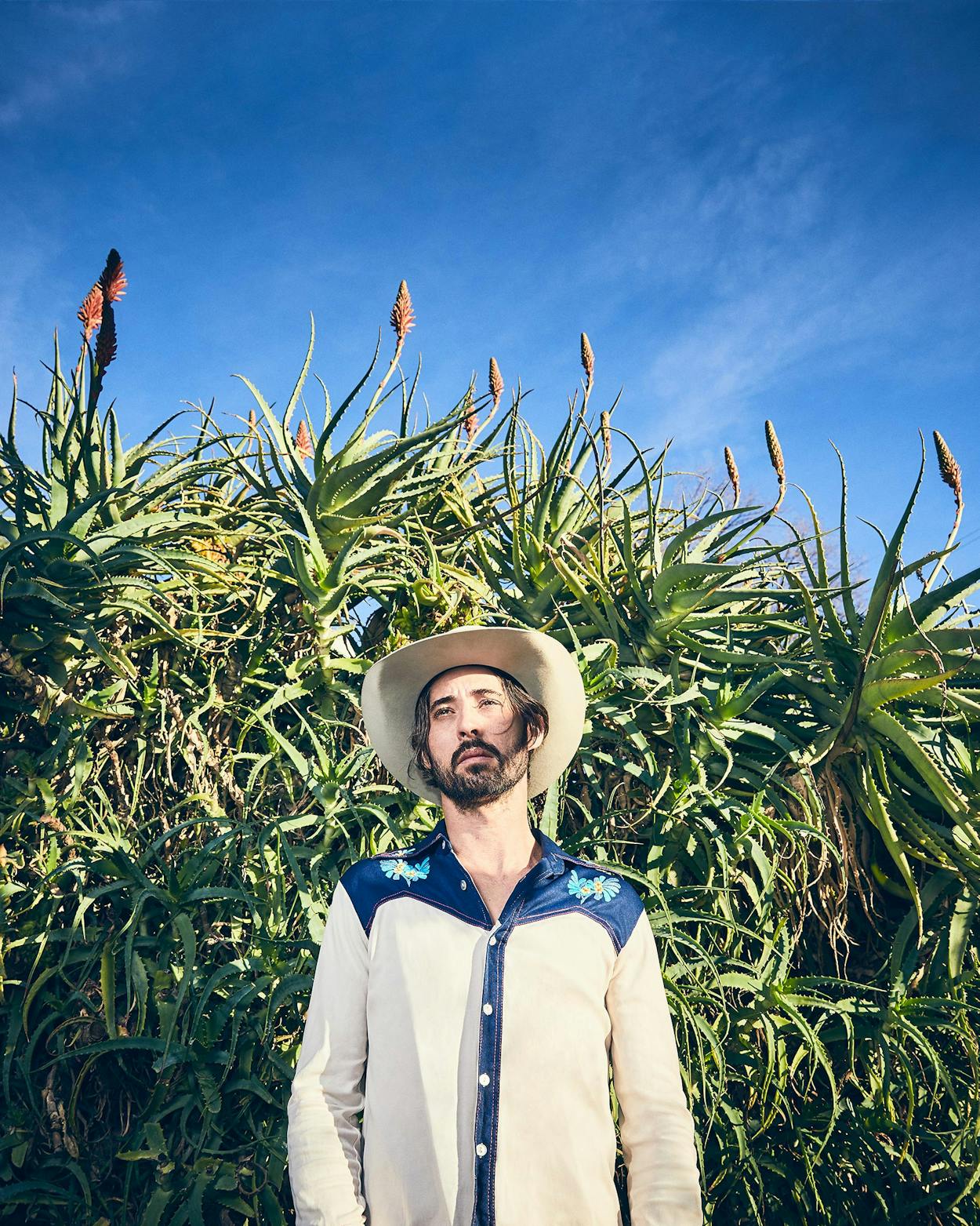Ryan Bingham has the heart of a folk singer, but his backstory is straight out of a country song: a youth spent in New Mexico, Texas, and California as his father chased oil-field jobs; leaving home at seventeen to ride on the rodeo circuit; the untimely deaths of his mother, an alcoholic, and his father, who took his own life. That journey informs much of American Love Song (February 15), the 37-year-old’s sixth album and first since 2015. But the record also turns a critical eye on the current state of affairs. He sings about a president “ridin’ on the back of a poor man, sellin’ them lies” and concludes that with “people takin’ children from their kin . . . this world is hardly beautiful or kind.” In addition to the LP’s release, Bingham is prepping for the Western, a new music festival he curated, which takes place in Luckenbach this April.
TM: You’ve had a lot of trauma in your life. Are you surprised by how much it connects with audiences?
RB: There are a lot of folks out there, unfortunately, who have been through similar stuff. I think that’s why some of these songs resonate so deeply with people. I almost feel like the audience is kind of going home for a family reunion—there’s a lot of emotion going on. Some of the venues where I play these intimate acoustic sets have completely sold out of alcohol. We played a show in Spokane, Washington, on a Tuesday night and they said they’ve never sold that much liquor in one night in the history of the venue.
TM: There are very direct political statements on American Love Song; in past interviews you’ve said that you feel that you’d be complicit if you didn’t write that way.
RB: There’s so much blatant rhetoric of racism and misogyny right now. I don’t want my kids to grow up and say, “Why didn’t you ever say anything?” I think it’s really important for everybody to speak their minds and not let fear back you into this corner where you just let everything go by. The single biggest inspiration I had growing up was Bob Dylan. He led me to Woody Guthrie, and from there I learned more about the civil rights movement and Martin Luther King Jr. Being a kid from small towns in New Mexico and West Texas, where nobody else was really talking about that stuff, I just saw this door open to another universe. And I went through it and I never came back.
TM: You’ve been on the rodeo circuit and grew up largely in rural places. Where else did those progressive views come from?
RB: My parents were pretty open-minded people, but I think leaving them at a young age really made me grow up fast. I didn’t have anyone telling me who to vote for or what kind of religious views to have or who I should date. But there were also the people I met along the way. I worked for Mack Altizer, who ran Bad Company Rodeo, in Del Rio. Those guys, even though they were cowboys, were all hippies. We were always the black sheep of the rodeo world. From there I went on to Paris, France, where I worked in this Wild West show. Being surrounded by so many different cultures and traveling to different countries just humbled me. It gave me this social awareness of other people in the world and how they lived in it. I think to really write songs, you need empathy. You have to put yourself in other people’s shoes.
TM: When you and a bunch of other musicians announced that you were playing a rally for Beto O’Rourke, you seemed to catch more flak for that than almost anybody else. Why do you think that is?
RB: I have this discussion with my wife and friends all the time. It’s not like I’ve been vague about the way I feel about social issues or anything like that. Tomorrowland [2012] was a protest record. Maybe folks hear one song and associate me with the cowboy backstory and don’t really pay attention to the rest of it.

TM: Your parents died around the time you had your first big hit with “The Weary Kind.” People talk about music saving lives, but being onstage in front of people is maybe not a natural thing for someone who is grieving.
RB: I was definitely not very comfortable. I spent my whole life trying to hide from people. Growing up moving to all these little towns all the time and going to new schools where people wanted to pick on the new guy, I did my best to be a chameleon. Being on a stage is still uncomfortable for me. But I don’t really have stage fright. And I think that might come from riding bulls growing up. My uncle was a bull rider, and when I started riding steers as a kid, he taught me that there is a certain mind-set that you need to develop to keep you safe and to really succeed: It’s not “I think I can.” It’s “I know I can, and I will.” He explained the difference between being cocky and being competent, of being confident and believing in what you’re doing but at the same time being respectful of your environment. I’ve always taken that with me.
TM: You were born in New Mexico and have lived in California for over ten years. But you’re a Texan. American Love Song is Texas music.
RB: It’s the foundation of everything I’ve done. My family lived in West Texas. We went to Houston and Laredo, ended up around Fort Worth—really just made the rounds. And I took in all of those different styles of music. From Houston and South Texas hip-hop—UGK, DJ Screw, the Geto Boys—to the blues—Lightnin’ Hopkins and Mance Lipscomb—and Louisiana influences in Cajun and zydeco music. I went down to Laredo and heard conjunto and Tejano and corridos, and then I was in Austin, where all that stuff comes together. This album really came about by visualizing a lot of those places. Not just where they were but what did they sound like? What did they smell like? What did the food taste like there? I was trying to figure out if I could describe and capture that.
This interview was edited and condensed from the National Podcast of Texas, Episode 55.
- More About:
- Music







